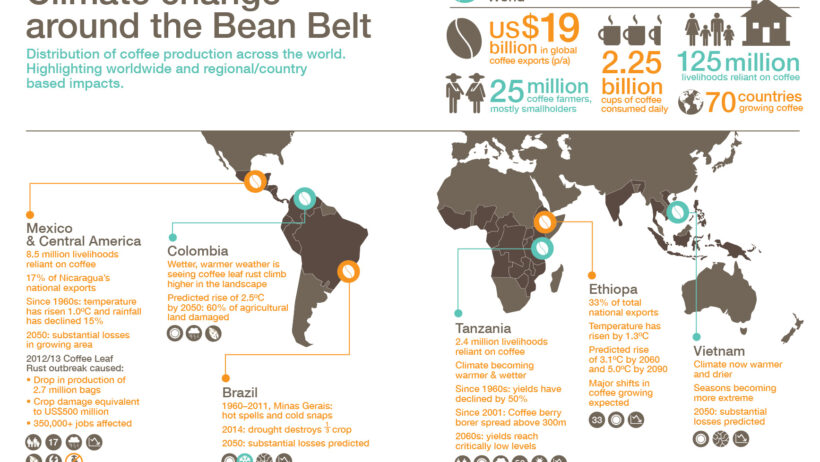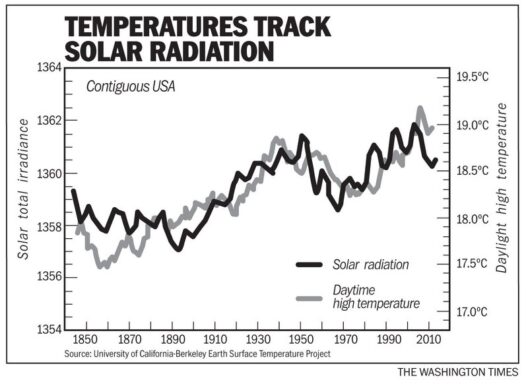In recent years, the coffee industry has faced a mounting crisis exacerbated by the relentless advance of climate change. The pervasive notion that coffee is merely a comforting beverage belies a more profound reality: it is a global commodity deeply entwined in the economies and cultures of numerous countries. Unfortunately, as climate change reshapes weather patterns and elevates temperatures, the once-thriving coffee plantations are becoming increasingly precarious. Understanding the nuances of this crisis reveals not only the vulnerability of coffee production but also the urgent need to address the environmental impacts affecting farmers around the world.
Fundamentally, coffee is a delicate crop that thrives in specific climatic conditions, generally requiring a stable climate characterized by moderate temperatures, ample rainfall, and suitable soil. Most commercially grown coffee varieties, particularly Arabica, flourish at higher altitudes but become severely compromised as global temperatures rise. The intricate balance of conditions necessary for cultivating high-quality coffee beans is becoming dangerously disrupted as extreme weather events such as droughts, floods, and hurricanes become more frequent.
One of the primary issues facing coffee farmers is the increasingly erratic precipitation patterns. In regions like Brazil—one of the world’s largest coffee producers—unpredictable rains can devastate crop yields. Excess moisture can promote the growth of diseases such as coffee rust, while insufficient rainfall can lead to drought stress, adversely affecting bean quality and quantity. The adaptation strategies that farmers currently employ, such as altering planting schedules or switching to different coffee varietals, are proving to be inadequate in addressing the systemic shifts brought about by climate change.
Moreover, temperature increases compound these pressing challenges. Coffee plants are particularly sensitive to temperature fluctuations. Optimal growth occurs within a narrow range of temperatures, and even slight deviations can be detrimental. According to climate projections, average temperatures in key coffee-producing regions are expected to rise significantly by the mid-century mark. Such increases could result in the loss of suitable land for coffee cultivation. This not only threatens the livelihoods of millions of farmers but also poses a risk to the global coffee supply chain.
The socio-economic implications of this crisis extend beyond the agricultural sector. Coffee farming communities often rely on this single export for their economic survival, and any disruption in production directly undermines their stability. As coffee yields dwindle, farmers may face increased poverty and food insecurity. Additionally, local economies—particularly in developing nations where coffee is a primary export—could suffer irreparable damage. This interconnectedness of climate crisis and economic livelihoods illuminates the urgency for adaptive strategies that support both farmers and their environments.
Interestingly, the fascination with coffee transcends mere consumption. It speaks to the intricate relationships farmers have with their land and the deep cultural significance the beverage holds globally. Coffee is not just a drink; it is a vessel of tradition, connection, and identity. The disruption of this connection—due to climate-related challenges—raises important questions about sustainability, environmental responsibility, and consumer awareness.
The discourse surrounding coffee and climate change invites consumers to reconsider their relationship with this ubiquitous commodity. Ethical sourcing and sustainable purchasing become paramount considerations as awareness grows about the environmental ramifications of coffee production. Initiatives promoting direct trade and Fair Trade practices empower consumers to make informed choices that support sustainable farming practices and provide farmers with fair compensation for their labor.
Moreover, innovative agricultural practices are emerging as potential solutions to combat the effects of climate change on coffee production. Agroforestry, for example, integrates coffee cultivation with tree planting, fostering biodiversity and enhancing resilience against climate adversities. This method not only helps mitigate the impact of soil erosion and improves carbon sequestration but also creates a microclimate that can shield coffee plants from extreme weather. Such sustainable techniques are vital for ensuring the long-term viability of coffee farming in an age threatened by climate instability.
Research and development initiatives focused on cultivating new coffee varietals that are more resilient to changing conditions are also essential. Genetic studies exploring hybridization and breeding techniques aim to produce beans that can withstand higher temperatures and resist disease. Collaborative efforts involving scientists, agronomists, and farmers play a critical role in facilitating this transition towards resilience and sustainability.
There is also a pressing need for policy reforms at local and international levels to support coffee farmers in adapting to this new reality. Governments and stakeholders must prioritize the allocation of resources—be it financial, technical, or educational—to equip farmers with the tools and knowledge necessary to navigate climate threats. Engaging in dialogues that foster collaboration between agricultural communities, policymakers, and environmental organizations can lead to holistic approaches that address both climate adaptation and mitigation.
In conclusion, the coffee industry stands at a crossroads marked by climate uncertainty and socio-economic challenges. Recognizing coffee as more than just a beverage is crucial; it embodies the livelihoods of millions and is deeply rooted in cultural traditions. The ongoing climate crisis calls for immediate action to support coffee farmers in adapting to shifting climate patterns. By championing sustainability, advocating for policy reforms, and educating consumers, the coffee community can collectively navigate this brewing trouble. Ultimately, the fate of coffee depends not only on what is in our cups but also on the choices we make as global citizens committed to a sustainable future.








